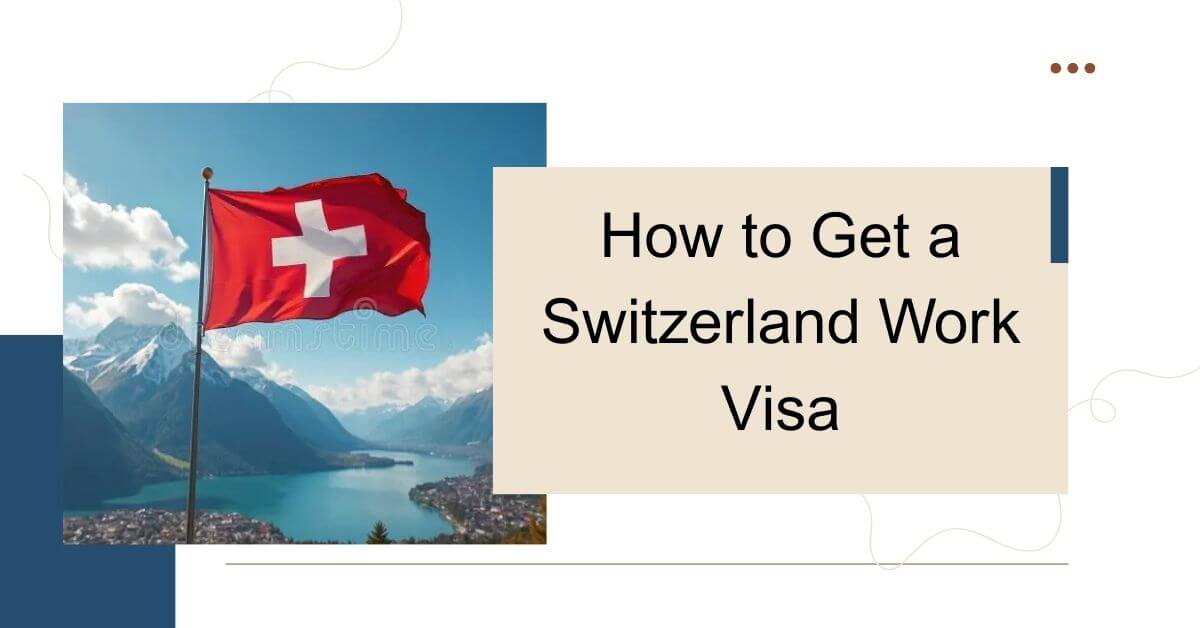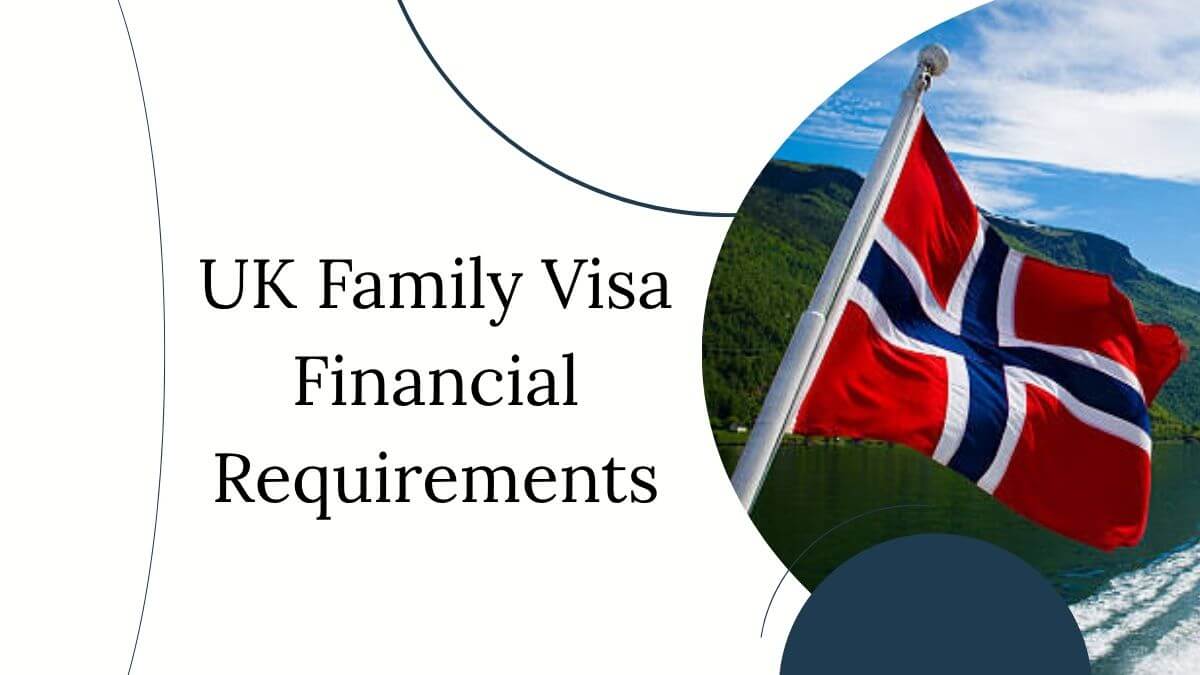
How to Get a Switzerland Work Visa – Complete Guide
How to get a Switzerland work visa is an important step for professionals aiming to grow their careers in one of Europe’s most prosperous and stable economies. Salaries in Switzerland are among the highest in the world, typically ranging from CHF 4,500 to CHF 7,000 per month, depending on the role, skills, and level of experience. Most positions require specialized qualifications and prior work experience, especially in fields like finance, healthcare, IT, engineering, and hospitality.
While certain industries, such as technology and consulting, may offer remote or hybrid work options, the majority of opportunities are physical, on-site jobs that demand strong professional expertise. Securing a Switzerland work visa not only opens doors to excellent career growth but also allows you to experience the country’s world-class lifestyle, stunning landscapes, and multicultural work environment.
Overview of Swiss Work Permits:
In Switzerland, work passes are mostly given by employers. Most people who are not from the EU or EFTA can’t apply on their own; they need a job in Switzerland to sponsor them. There are different types of permits based on the length of the job, where the person lives, and how they commute:
| Permit Type | Duration | Purpose | Notes |
|---|---|---|---|
| L Permit | 3–12 months | Short-term residence | Can be extended; often for project staff or temporary assignments |
| B Permit | ≥12 months or unlimited | Long-term residence | Renewable annually; highly sought by non-EU/EFTA nationals |
| G Permit | Commuter basis | Cross-border workers | For those living in neighboring countries like France, Germany, Italy, Austria |
| C Permit | Permanent | Settlement | Granted after several years of residence; not an initial work permit |
Quotas for Non-EU/EFTA Workers:
Switzerland sets annual limits on the number of non-EU/EFTA workers who can come to work there. This protects the local job market. These are the federal quotas for 2025:
| Permit Type | Allocated Quota | Purpose |
|---|---|---|
| L Permit | 4,000 | Short-term employment |
| B Permit | 4,500 | Long-term employment |
There are a limited number of these shares, which are split among the Swiss cantons. Employers must follow quota rules and show that there isn’t a local Swiss or EU/EFTA candidate who can fill the job. As a result of Brexit, quotas also include special allocations for people from the UK.
Who is Eligible for a Swiss Work Visa?
You may or may not be eligible depending on your country and job.
EU/EFTA Nationals
- It will be easier to get a job.
- Usually, there are no hard limits.
- Permits are easier to get, and they are usually given out after registering with the commune (local government).
Non-EU/EFTA Nationals (Third-Country Nationals)
- We only look at highly qualified professionals or jobs that can’t be filled locally.
- Employers must show that they have tried hard to hire people in Switzerland and the EU/EFTA.
- Approval depends on the number of open spots, tests of the job market, and proof of pay and working conditions at the Swiss level.
Types of Switzerland Work Visa:
Switzerland Residence Permit for Employment:
A Switzerland residence permit for employment allows foreign nationals to legally live and work in the country. Non-EU/EFTA citizens usually require both a work contract from a Swiss employer and a residence permit approved by the cantonal authorities. These permits are typically issued as either B permits (residence for one year or more) or L permits (short-term work contracts). Salaries in Switzerland are among the highest in Europe, often ranging from CHF 60,000 to CHF 120,000 annually, depending on the profession. Holding a residence permit provides access to healthcare, social benefits, and family reunification rights, making it an essential step for expats pursuing employment in Switzerland.
Short-term Work Visa Switzerland:
The short-term work visa for Switzerland (L permit) is ideal for foreign employees who plan to work in the country for up to one year. It is often issued for temporary projects, internships, or seasonal jobs in industries such as hospitality, agriculture, and construction. Applicants must have a valid job offer, employment contract, and employer sponsorship, as Swiss companies are responsible for applying through the local canton. Salaries vary by sector, but seasonal workers typically earn between CHF 2,500 and CHF 3,500 per month, while skilled professionals may earn higher. This visa is perfect for those seeking short-term employment and international experience in Switzerland.
Long-term Work Visa in Switzerland:
A long-term work visa in Switzerland (usually a B permit) is granted to foreign nationals with employment contracts exceeding one year. It is most common for highly skilled workers, specialists, and professionals in sectors like finance, IT, healthcare, and engineering. Applicants need a job offer, proof of qualifications, health insurance, and sufficient accommodation. Salaries for long-term visa holders are highly competitive, often ranging from CHF 70,000 to CHF 150,000 annually, depending on experience and role. This visa also allows for family reunification, social security benefits, and a pathway to permanent residency after several years of continuous employment.
EU/EFTA Citizens Work Permit Switzerland:
For EU/EFTA citizens, work permits in Switzerland are much easier to obtain under the Agreement on the Free Movement of Persons. EU/EFTA nationals do not need a visa to enter Switzerland but must register with local cantonal authorities if they plan to stay beyond three months. Depending on the employment contract, they may receive an L permit (short-term stay) or a B permit (long-term residence). Salaries for EU/EFTA citizens in Switzerland are highly attractive, often averaging CHF 80,000 per year for skilled roles. With simplified entry, strong job demand, and high living standards, Switzerland remains a top destination for European professionals.
How to Get a Switzerland Work Visa:
There are several steps to applying for a Swiss work visa, and your company will usually start the process. Here is a useful step-by-step guide:
Step 1: Secure a Job Offer
- Get a signed job contract that includes the following:
- What the job is and what it does
- The pay and the perks
- Length of work
- Location and hours of work
To get a visa, this deal is very important.
Step 2: Employer Submits Permit Request
- Your company sends your request for a permit to the migration office in your canton.
- The canonical sources look at:
- Conditions in the local job market
- If a candidate from Switzerland or the EU could fill the job
- For people from third countries, recruitment attempts must be documented.
Step 3: Cantonal Approval & Quota Verification
- If the canton agrees, the application can be sent to the central government and SECO to be looked over.
- Cantonal offices make sure that quotas are available and that labor market rules are being followed.
Step 4: Visa Application at Swiss Embassy/Consulate
- After being approved, the person asks for an entry visa at the Swiss embassy or consulate in their home country, if that is necessary.
- EU/EFTA citizens usually skip this step and register right away when they arrive.
Step 5: Arrival & Local Registration
- When you get to Switzerland:
- Sign up with the commune (town hall) in your area.
- Get your allow card (B or L).
- Sign up for the required Swiss health insurance
After registering, you are legally allowed to live and work in Switzerland.
Documents Required for Switzerland Work Visa:
Rules may be different for each job and each canton. Documents that are standard include:
| Document | Purpose |
|---|---|
| Signed employment contract | Confirms job offer and salary |
| Passport copy & photos | Identification |
| CV, diplomas, professional certificates | Qualifications proof (attested if required) |
| Proof of recruitment efforts | Demonstrates no local/EU candidate available |
| Police certificate / criminal record | Security clearance |
| Health insurance confirmation | Mandatory coverage upon arrival |
Practical Tips to Improve Approval Chances:
- Make sure that your employer gives pay and benefits that are on par with Switzerland.
- Apply well before limits are filled; sending in your application early makes it more likely that it will be accepted.
- Make sure the paperwork is full and correct, and if necessary, translate it.
- Keep in touch with the HR or PRO team at your workplace.
Realistic Timelines:
- Job Offer and Employer Submission: One to two weeks
- Processing and quota check by the canton: 4–8 weeks (varies by canton)
- Federal approval takes two to six weeks for people from third countries.
- Asheville One to three weeks to process visas
- EU/EFTA citizens usually finish registering in one to two weeks after they arrive.
Key Takeaways:
- In 2025, most employers decide who gets a work visa for Switzerland.
- Type of permit varies on length of job, status of commuting, and nationality.
- For people from third countries, strict limits are in place: 4,000 L permits and 4,500 B permits.
- Companies must show that they are trying to hire people in the area and pay at the Swiss level.
- For acceptance, proof, translations, and attestations are very important.
Frequently Asked Questions:
Who can apply for a Switzerland work visa?
Foreign nationals with a job offer from a Swiss employer can apply, typically for roles that require specialized skills.
What documents are needed for the work visa application?
You generally need a valid passport, an employment contract, proof of qualifications, and occasionally a clean criminal record.
How long does it take to obtain a Switzerland work visa?
Processing usually takes 4–8 weeks, but it can vary depending on your country of origin and the type of permit.



